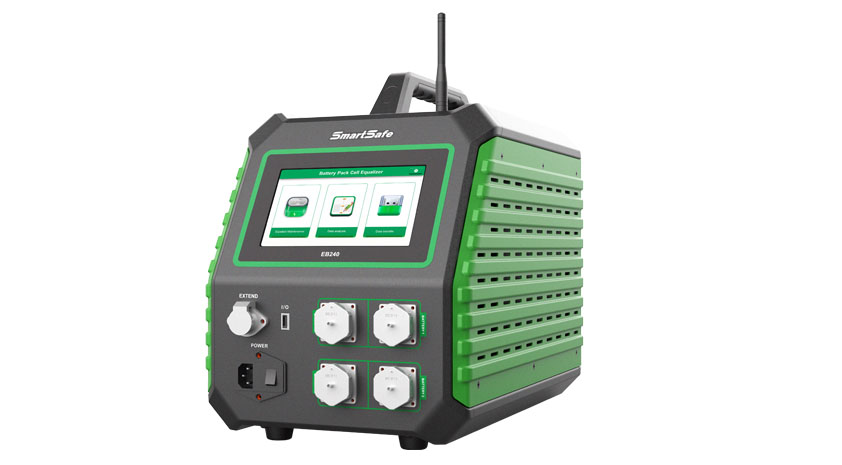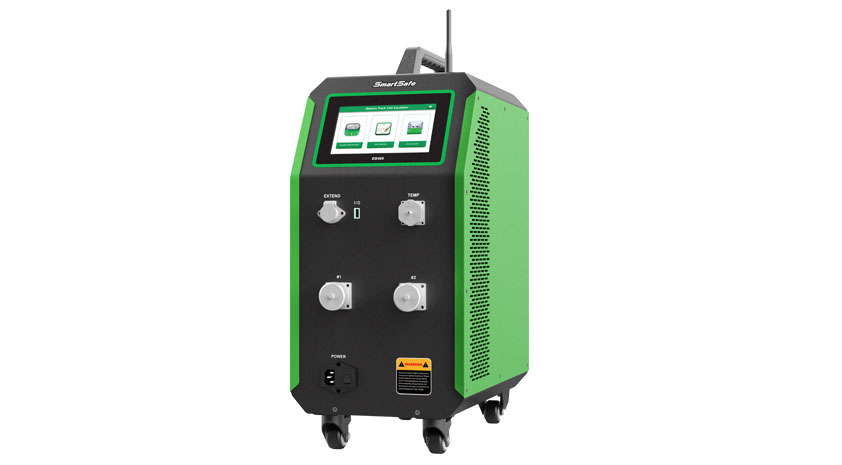A battery equalizer is a device or system used to balance the voltage or charge level of the individual cells in a battery pack. Batteries usually consist of multiple cells connected in series or parallel to achieve the required voltage and capacity. Over time, due to differences in manufacturing, usage, and environmental conditions, the voltage level and state of charge of the battery will vary. When a voltage imbalance occurs, it can lead to degraded battery performance, shortened life, and potential safety hazards.
A battery equalizer plays a vital role in optimizing your battery's performance and extending its lifespan. Here's how the battery equalizer works:
① Voltage Sensing: The equalizer system includes voltage sensors to monitor the voltage of each individual cell in the battery pack. These sensors continuously measure voltage levels.
② Compare: Compare the measured voltage level with a reference voltage or a desired target voltage. If the battery voltage deviates from this target voltage, it is identified as unbalanced.
③ Equalization Circuitry: Equalizers include circuits that redistribute electrical energy within the battery pack. It does this by shunting excess charge from an overcharged battery to an undercharged battery, or by actively discharging an overcharged battery until it reaches the desired voltage level.
④ Balancing process: The role of the equalizer is to equalize the voltage levels of all the cells so that they are as close as possible to the desired target voltage. This ensures that each cell contributes its fair share to the overall capacity and performance of the pack.
Battery equalizer helps optimize battery pack performance, extend battery life, and reduce the risk of individual cells being overcharged or undercharged, which can cause safety hazards and reduce battery efficiency.
When to use a battery equalizer? Here are some situations where you should consider using a battery equalizer:
① Electric vehicle (EV): The battery of an electric vehicle usually consists of multiple batteries connected in series in order to achieve the required voltage. Battery cell equalizers can help maintain uniform cell voltages in electric vehicle battery packs, which is critical to safety and performance.
② Solar system: The battery used in the solar system usually consists of many batteries connected in series or parallel. Solar charge controllers may not always provide perfect voltage balance. A battery equalizer ensures that all cells remain balanced, optimizing energy storage and the overall life of the battery pack.
③ Uninterruptible Power Supply (UPS): UPS systems rely on batteries to provide backup power during power outages. A battery equalizer can help ensure that batteries remain balanced and ready to deliver power when needed.
④ Renewable energy storage: Batteries used to store renewable energy such as wind or hydropower typically require voltage balancing to maximize energy storage and system efficiency.
⑤ Off-grid power systems: Off-grid power systems that rely on batteries for energy storage can benefit from battery equalizers to maintain the health and performance of battery packs.
⑥ Industrial applications: In various industrial environments, batteries are used for backup power, emergency lighting and other applications. A battery equalizer can help ensure those batteries are always ready to run when needed.
⑦ Any multi-cell battery pack: Essentially any application that uses a multi-cell battery pack, especially one that involves series-connected cells or battery packs, can benefit from a cell equalizer. This includes applications where the battery is subjected to different load or charging conditions.
It is important to select the correct type of battery equalizer for your specific application and battery chemistry. In addition, regular maintenance and monitoring of battery voltage is critical to ensure that the equalizer operates effectively and the battery pack remains in good condition.
EB240 is a high-precision equalization maintenance equipment designed based on the charging and discharging of EV lithium batteries, which can effectively repair battery module performance problems caused by inconsistent battery cell voltages.

The EB480 is a precision lithium battery equalization maintenance device specifically crafted around the charging and discharging processes of lithium batteries in electric vehicles (EVs). It is adept at efficiently addressing the issue of reduced driving range stemming from voltage disparities among batteries.

Return